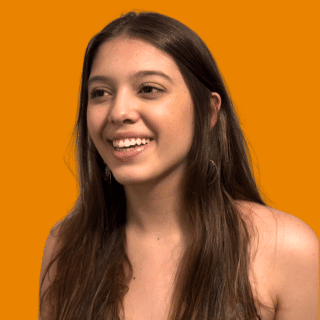Adhara

About Adhara
Moved by the people with disabilities around her, Adhara co-founded the Keller Project to promote the inclusion of this community in various spaces.
Adhara has always been surrounded by people with disabilities. During her childhood, she was cared for by a visually impaired woman. Her grandmother was the first person to establish a school for people with disabilities in the interior of Goiás, in the municipality of Rio Verde. From the early years of the school, Adhara became involved in social projects, but it was in the Keller Project (PK) that she felt most fulfilled and connected to the cause. Upon meeting Daniel, a schoolmate with hearing impairment, she realized the importance of mobilizing the debate about disabilities in the educational environment, promoting visibility and accessibility for people with disabilities. Thus, the duo founded PK, which offers elective courses in Brazilian Sign Language (Libras) in schools in various states, encourages the participation of young people with disabilities in academic Olympics and Model United Nations simulations, supports the inclusion of people with disabilities in the job market, and studies language adaptation for immigrants with disabilities.
Adhara and Daniel are the leaders of the project, which has 51 volunteers divided into eight teams: media/design, Model UN/debate, editing/writing, HR, competition, events, partnerships, and technology. For Adhara, being a "Keller" - a volunteer of the project - promotes personal transformation through both the knowledge acquired and the practice of empathy. Within the project, young people with disabilities participate not only as beneficiaries but also propose ideas and contribute to the growth of PK. The initiative has partnerships with organizations such as UNICEF and Be For People, as well as companies for the employment of people with disabilities. As next steps, the Young Changemaker wishes to introduce Libras electives in all states, expand exchanges with immigrants adapting to sign language from different countries, and employ 100 people with disabilities.